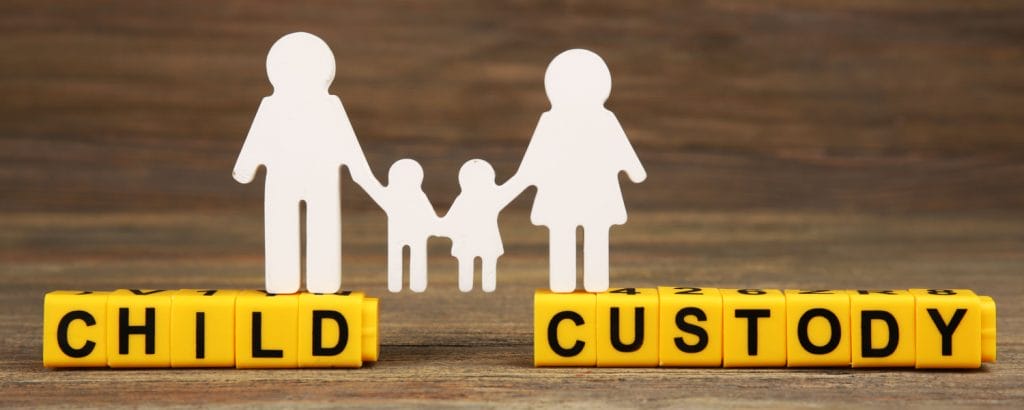Child custody disputes can be emotionally draining and legally complex. In many cases, parents turn to mediation as an effective means of resolving these issues without the need for a lengthy and contentious court battle. Mediation offers a more collaborative and child-centered approach by using a third party mediator, allowing parents to work together to find a mutually agreeable custody arrangement.
To ensure a successful child custody mediation process, it’s essential to be prepared. This checklist will guide you through the key steps to take before, during, and after mediation, helping you navigate the path to resolution with confidence.
To learn more about the benefits of mediation check out “10 Benefits of Divorce Mediation.”

Before Mediation
- Understand the Basics: Familiarize yourself with the basics of child custody laws in your jurisdiction. This will help you understand your rights and responsibilities as a parent. You should understand the differences between legal and physical custody, and be familiar with the concepts of alimony, child support, and asset division. A mediation plan must be thorough and specific to be enforceable.
- Consult an Attorney: Before entering mediation, it’s wise to consult with an experienced family law attorney who can explain your legal rights, provide guidance on negotiation strategies, and help you prepare for the process. The mediator does not represent anyone specifically during mediation so talking to an experienced family law attorney can help you prepare for every aspect of mediation.
- Gather Documents: Collect all relevant documents, including financial records, school reports, medical records, and any documentation related to your child’s well-being. You will also need records of assets such as bank accounts, deeds and titles, and any other relevant information. Having this information readily available can be crucial during negotiations.
- Create a Parenting Plan: Develop a preliminary parenting plan outlining your proposed custody and visitation schedule. Be prepared to discuss your plan and be open to modifications based on the mediator’s suggestions and your ex-partner’s input. Keep the best interests of the children in mind to create an agreement that is not only fair for the spouses, but also the children. Courts will always keep the best interest of the children in mind when making decisions and could find your agreement to be unenforceable if the agreement doesn’t put the needs of the children first.

During Mediation
- Choose a Qualified Mediator: Select a qualified and experienced mediator who specializes in family law and child custody issues. A skilled mediator can facilitate productive discussions and help you reach an agreement that’s in the best interests of your child. Mediators are often lawyers but not always, so it is also recommended to bring your own representation to meetings.
- Maintain Open Communication: Keep communication with your ex-partner respectful and focused on the needs and interests of your child. Avoid confrontational language and personal attacks, as they can hinder the mediation process. The goal of mediation is to come to an agreement between both spouses about every piece of your divorce. Open communication allows couples to work collaboratively and can foster a less adversarial relationship between spouses after the divorce has been finalized.
- Listen Actively: Actively listen to your ex-partner’s concerns and be willing to compromise. Remember that mediation is about finding common ground, not “winning” the case. Both spouses need to put the children first, and should not focus on getting only what they selfishly want.
- Stay Child-Focused: Always prioritize your child’s best interests. Be willing to consider their needs and adapt your parenting plan accordingly.
After Mediation
- Review the Agreement: Once an agreement is reached, review it carefully with your attorney to ensure it aligns with your understanding and expectations. This agreement should outline every possible scenario that comes up when sharing custody including plans for future vacations, school days, parenting time day to day, pick up and drop off times, and more.
- File the Agreement: Depending on your jurisdiction, you may need to file the mediated agreement with the court for approval. Your attorney can guide you through this process. After filing the agreement, if it is accepted, it can then be enforced by the court.
- Comply with the Agreement: After approval, adhere to the terms of the custody agreement diligently. Failure to do so can lead to legal consequences and further disputes. To learn more about the consequences of ignoring court orders check out “What Happens If You Do Not Follow a Family Court Order In Illinois?”
- Seek Legal Assistance if Necessary: If disputes or changes to the agreement arise in the future, consult your attorney to explore legal remedies or modifications through the court system. Court orders can be changed after they have been finalized if a party can prove there have been significant changes in their circumstances like a large change in income or living conditions. You can always check your local county courthouse’s website for more resources.

Conclusion: Checklist for Child Custody Mediation
Mediation has quickly become the preferred method for married couples seeking divorce. Child custody mediation can provide a more amicable and child-centered approach to resolving disputes. By following this checklist, you can prepare effectively, engage constructively, and reach a mutually beneficial agreement with your ex-partner. Always remember that the well-being of your child should be the guiding principle throughout the mediation process.
MEET WITH AN ILLINOIS FAMILY LAW ATTORNEY TODAY
The Family Law attorneys at Koth Gregory & Nieminski understand that your family is the top priority, which is why we offer SAME-DAY APPOINTMENTS. If you need a divorce or other family law services, you can schedule your first meeting through our online appointment calendar. We look forward to meeting you.
Disclaimer: This article (Checklist for Child Custody Mediation) may contain information that is outdated as Illinois law continuously evolves. Meeting with an experienced family law attorney is the best way to ensure you are receiving the most current information about a Checklist for Child Custody Mediation.

Published by Dustin Koth on August 12, 2024
